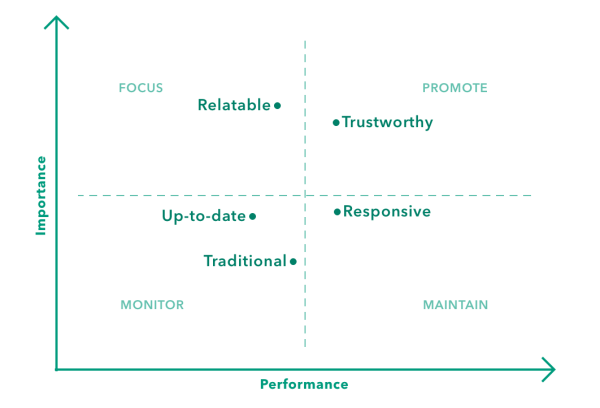Using regression analysis to understand what drives customer satisfaction
Net Promoter Score® is a tried and true metric for quantifying customer loyalty, but understanding what drives customer loyalty is often the more impactful insight. Regression analysis helps businesses identify what matters to their customers and where to focus their resources.
What is regression analysis?
Regression analysis is a family of statistical methods that relate a set of independent variables in data to a single dependent variable, or the outcome we’re interested in. With regression, we can understand the relative importance of each independent variable and describe their impact on the dependent variable.
How can you use regression?
Key driver analysis
Surveys are great for collecting data on customers’ opinions and satisfaction levels. They often ask to what extent a consumer agrees with a particular statement, such as “The company is responsive to my needs” or “The company is trustworthy.” When the survey also includes a CSAT or NPS® question, statistical tools use regression to relate the various survey answers to the satisfaction level measured.
Among the outputs of regression are numbers called coefficients that get assigned to each independent variable. The regression coefficients are used to assess which questions, or company attributes, have the greatest impact on the customer satisfaction score. These coefficients are often plotted against each attribute’s average performance to create a key driver map. Key driver maps group independent variables into meaningful, actionable focus areas for the business. Stakeholders can use this insight to help decide which aspects of the customer experience to emphasize, monitor, or improve.
Key Driver Map

Defection research
Regression analysis can also produce models to help understand why customers defect. Based on past customer data, a predictive model assigns probabilities indicating how likely future customers are to leave. Given that customers are more valuable the longer they stay with a company, this can help businesses identify customers with a high risk of defecting and proactively work to retain them.
Analyze, apply, act
There isn’t a single way to know what is driving your customer experience. Surveys identify what people are saying about their experiences, but companies still don’t know whether those experiences have an impact on larger business objectives. Regression analysis assesses and ranks the factors that contribute to overall customer satisfaction, ultimately providing a roadmap for your CX strategy.
Do you want to know what drives your CX outcomes?
Our advanced analytics team can help you uncover what motivates your customers and what you can be doing to increase their lifetime value.